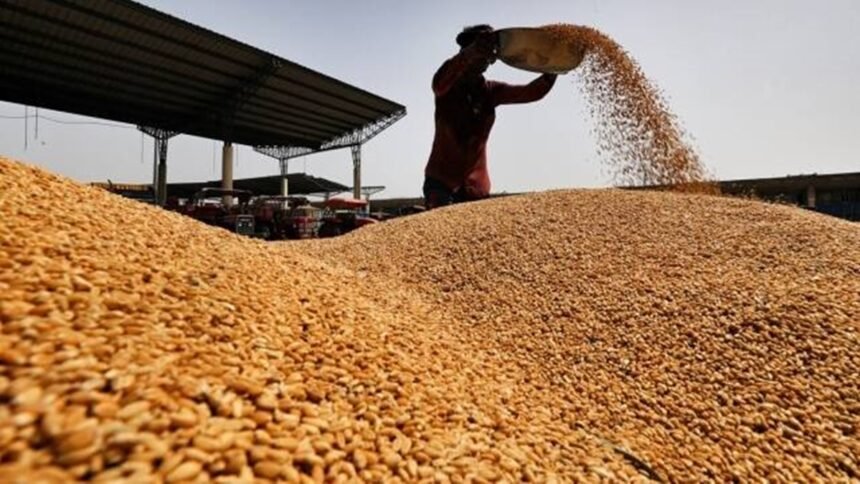The Indian government has reaffirmed its decision to maintain the ban on wheat exports, citing the need to control rising domestic prices. The ban, which was implemented in May 2022, remains in place despite the country being the world’s second-largest producer of wheat. However, the government has expressed willingness to consider shipping the foodgrain through diplomatic channels on a case-by-case basis.
Consumer Affairs Secretary, Rohit Kumar Singh, unequivocally stated that there is “no chance at all” of lifting the ban on wheat exports. The government’s focus is on ensuring an adequate supply of wheat to meet domestic demand and stabilize prices. As part of this strategy, India has been engaging in government-to-government trade arrangements to supply wheat to neighboring countries like Nepal and Bhutan.
Singh further explained that the Ministry of External Affairs can approach the government with specific requests for wheat exports through diplomatic channels. In such cases, each request will be evaluated individually before a decision is made. This approach allows the government to exercise discretion while maintaining control over wheat availability and prices within the country.
The ban on wheat exports was initially imposed as a measure to curb the escalating prices of the staple grain in the Indian market. By restricting exports, the government sought to ensure an adequate supply of wheat to meet domestic needs and stabilize prices, particularly for the benefit of consumers.
India’s decision to maintain the ban reflects the priority given to the domestic market, where wheat is a staple food and an essential commodity. The government aims to avoid any potential shortage or price volatility that could negatively impact its citizens. By closely monitoring and controlling the export of wheat, authorities can better manage the grain’s availability and price stability within the country.
Despite the ban, India has been engaged in supplying wheat to select countries through government-to-government trade arrangements. This approach allows the government to ensure that its neighbors, such as Nepal and Bhutan, receive a sufficient quantity of wheat. However, such arrangements are made on a case-by-case basis, indicating a cautious and measured approach to wheat exports.
The government’s decision to consider diplomatic shipments of wheat highlights the importance of maintaining diplomatic relations and meeting the needs of friendly nations. By assessing requests from the Ministry of External Affairs individually, the government can carefully evaluate factors such as diplomatic ties, the recipient country’s requirements, and the potential impact on domestic availability and prices.
While the ban on wheat exports may disappoint those involved in the international wheat trade, the Indian government’s priority remains the welfare of its citizens. The decision to continue the ban, coupled with the consideration of diplomatic shipments on a case-by-case basis, demonstrates a balanced approach to managing the availability and affordability of wheat within the country.
India has ruled out lifting the ban on wheat exports, citing the need to stabilize domestic prices. However, the government is open to considering diplomatic shipments of wheat on a case-by-case basis. This approach allows for careful evaluation of requests from the Ministry of External Affairs while ensuring the availability and affordability of wheat in the domestic market. The government’s focus remains on meeting the needs of its citizens and maintaining stability in the wheat sector.




